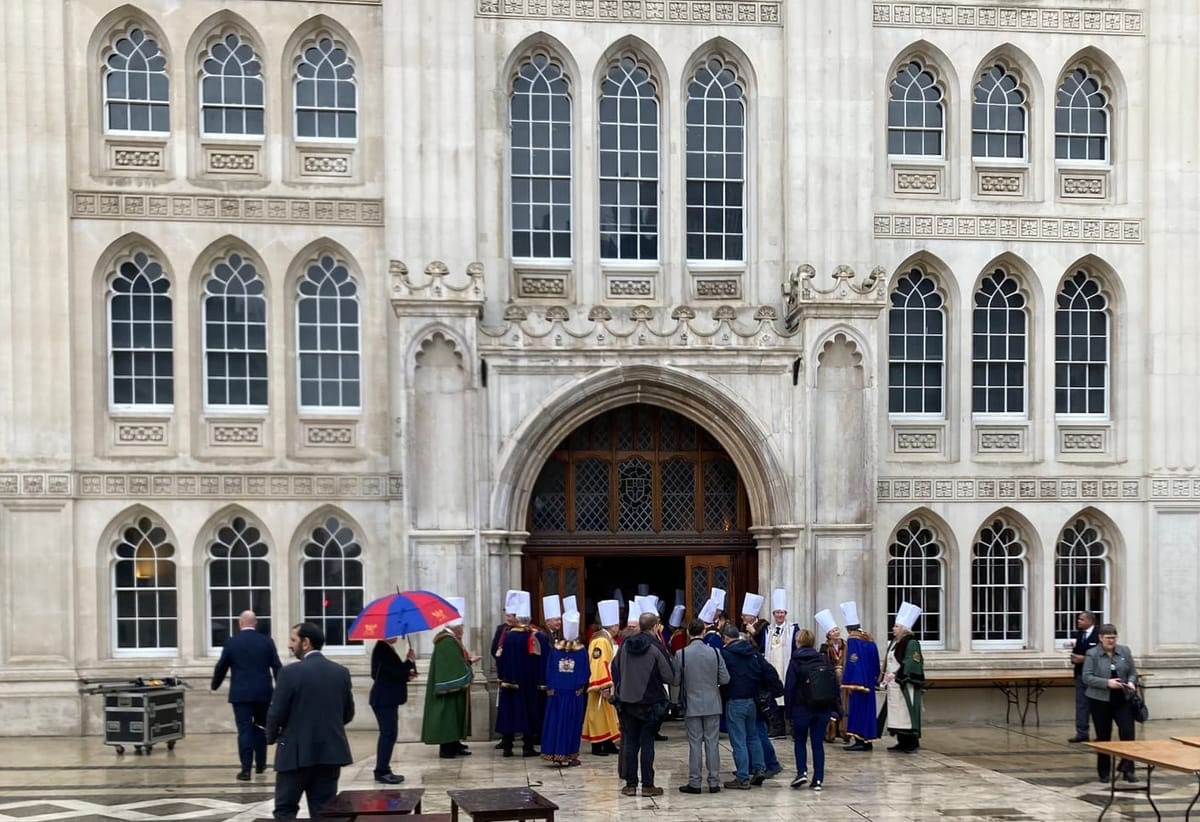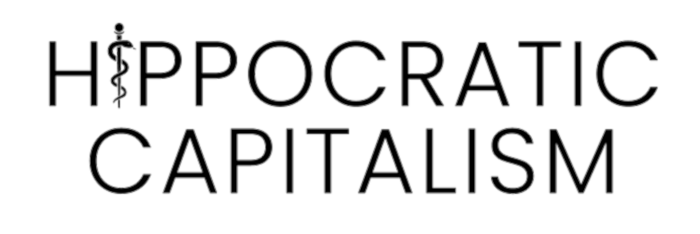Pancakes and Professions

Of the many strange and wonderful quirks of London history, one that particularly fascinates me are its Livery Companies (“livery” referring to the distinctive uniforms they wore on formal occasions). Ever since the establishment of the Weaver’s Company in 1155, these trade guilds have played a significant role in London economic life. They provided formal apprenticeships, regulated trade, and ensured the quality of products sold in the city. (The term “baker’s dozen” came from the Worshipful Company of Bakers, for example). Prior to the UK’s post-WWII welfare state, livery companies also played a critical role in providing social safety nets for their members and members’ families, including forms of life insurance and health insurance.
Obviously, trades have evolved quite a bit since medieval times. For example, the Worshipful Company of Tallow Chandlers (not to be confused with the Worshipful Company of Wax Chandlers) doesn’t play quite the role in supplying tallow candles to the citizens of London as it did, say, 300 years ago. Same story for the Bowyers (makers of archery bows). And so many livery companies have evolved into charitable civic clubs. But others continue to play important roles in advancing various trades and professions in London.
What are some of those activities?
- Some livery companies have formal regulatory authority, such as the Goldsmiths who assay all gold and silver bullion that is traded in the city. (The word “hallmark” derives from the mark once stamped onto gold and silver bullion at London’s Guild Hall).
- Some companies support schools, including technical schools and training programs.
- Companies raise money for various charities. The photo on this newsletter is from one of those fundraisers, the annual Shrove Tuesday Pancake Race.
- Companies participate in City of London government, particularly with regard to economic development. This includes a role in selecting Aldermen and the Lord Mayor.
Are medical professions represented? Absolutely.
The Worshipful Company of Barbers includes dentists and surgeons. The Worshipful Society of Apothecaries includes physicians. And the very newest company, finally approved for full livery status in May 2023, is the Worshipful Company of Nurses. (It’s worth noting here that nursing wasn’t professionalized in Britain until Florence Nightingale came along. But still, you’d think it wouldn’t have taken until 2023 for them to join in this club-of-clubs alongside the Barbers and Apothecaries.) Over the years many of professional association functions of these groups have been subsumed by national associations, such as the Royal College of Surgeons and the Royal College of Medicine, but the history geek in me loves that the local flavour continues. And if I were a surgeon, I would absolutely want to be part of the Worshipful Company of Barbers.
What can modern healthcare learn from London’s livery companies?
- Professions matter. Whether you’re an airline pilot or a plumber or a pavior (street paver) or a surgeon, you take pride in your knowledge and skills and in the quality of your work (and your colleagues' work).
- Professions require nurturing. This includes maintaining training programs for new entrants, along with the means of certifying the quality of both members and what they provide to the public. The people best positioned to play these roles, in terms of both expertise and passion, are the members themselves.
- Professional associations can’t simply look after their own interests. They need to act in the interest of the public at large. I believe that one of the reasons for the decline of the American labor movement since 1980 has been the perception that unions protect their members at the expense of the public. For example, that unions are the reason we have both “bad cops” and “bad teachers.” I’ll withhold my opinion on how true this perception is, but perception does matter.
Now, a confession. I am not, and have never been, a regular member of the American Medical Association. Maybe that’s a mistake. My objection to membership is partly due to the AMA’s history of advocacy against universal health insurance, and partly due to the ways in which procedural subspecialists are overpaid at the expense of primary care (by means of the CPT billing code system which AMA controls). In other words, pursuing (some) doctors’ economic interests at the expense of the needs of patients and the system overall. But I am an active member of the College of American Pathologists, and have engaged on committees related to healthcare IT, laboratory quality, and (currently) artificial intelligence in pathology and laboratory medicine.
Bottom line: Medicine needs strong professional societies. But for medical professional societies to thrive, they need to prioritize the common good, not just the economic interests of their members.
